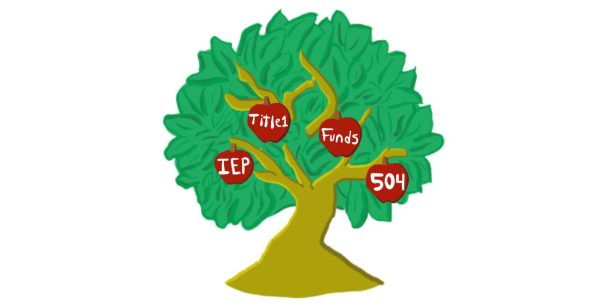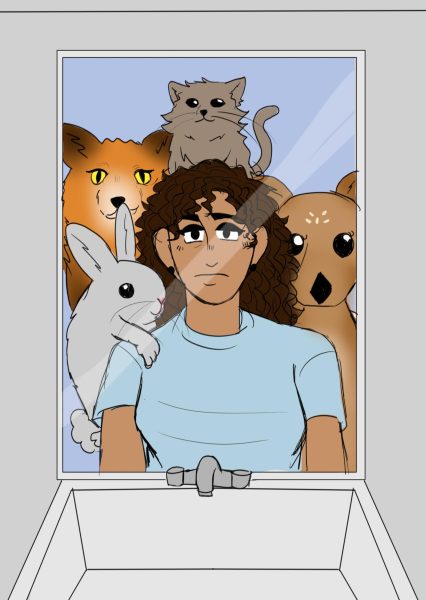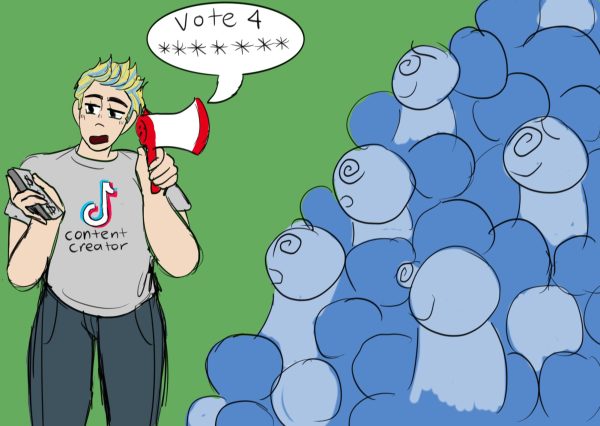A change in perspective
BVH students have greater potential

In a world of diversity, there also tends to be a world of stereotypes, stigmas and differing perceptions. Bonita Vista High (BVH) is no exception. Many view BVH as a “ghetto” school, due to the unrenovated, outdated campus, however, there is no need for students and staff to continually accept the label of “ghetto”.
The term “ghetto” refers to “racially marginalized and impoverished urban spaces”, according to the National Library of Medicine. BVH being referred to as “ghetto” comes from being known as a minority-majority school, where 86.4 percent of students are a racial minority. As a result, being referred to as “ghetto” gives outsiders and the community an excuse to discredit minority communities due to the lack of resources, environment and mental ability and support.
Aside from the recently renovated football stadium, BVH has not been able to receive many renovations to facilities such as the Bolles Theater and the band room due to the lack of resources and money. This may lead to the impression that BVH’s campus is “dirty” and “old.” Although renovations are out of administrations’ control, it is up to students to renounce the perception of “ghetto”.
BVH was founded in 1966 with many generations of classes leaving their mark on campus. The result is wear and tear; apparent throughout the lockers, the classrooms and even the bathrooms as well. Despite the “worn-out” look, students and staff alike should be able to maintain the campus.
In addition to the “worn-out” look, students’ trash can be found everywhere on campus. With that being said, many students find it easier to litter due to the “mob mentality”. Mob mentality, according to Array Behavioral Care, refers to how students take on the behaviors and actions of others around them in addition to the environment surrounding them. Their mindset suggests that it’s okay to litter the campus because their friends and peers do it. The same logic applies to vandalism in school bathrooms with seafood in the toilets and graffiti on the walls.
Students’ perception of BVH’s campus also contributes to its lack of cleanliness. For example, since BVHs campus is already “dirty” and “messy,” it is easier to maintain messiness rather than keep a clean campus.
BVH’s initial perception of a “ghetto” school does not only lead to a littered campus; it also gives students an excuse to misbehave. Being a “ghetto” school gives students justification for vandalizing the school with the idea that “We’re a ghetto school”. Thus, a continuous cycle of misconduct and misbehavior is repeated and enforced.
If the BVH community works together to maintain the campus, it will give Barons a campus to be proud of, despite the campus not being as new as it was decades ago.
When students absorb the stigma of being “ghetto”, it leads them to a cycle of discouragement for taking advantage of academic opportunities BVH offers. For example, students choose not to take International Baccalaureate (IB) and Advanced Placement (AP) classes because they believe these classes are hard and therefore, they believe they cannot succeed in these classes.
According to a study published by the National Library of Medicine, “individuals from ethnic-minority backgrounds are often stigmatized and, as a result, face increased risk for negative academic outcomes such as lower motivation.”
However, instead of the “ghetto” label hurting students learning, this instead should drive students to prove outside opinions wrong. According to Collegeboard, AP classes are meant for everyone, but it is up to the individual to take it upon themselves to put effort into the class to pass. BVH facilitates the process of learning through offering multiple resources, such as after school TEAM tutoring, IB trained teachers and an IB coordinator.
While termed “ghetto” for their ethnic makeup, the BVH community does not need to take this label to heart. Instead, they should do the opposite and take it upon themselves to prove the label wrong. Students can find themselves succeeding at academics as well as maintaining a campus they can be proud of.

This year, I am co-Editor-in-Chief for 2022-2023. I’m a senior and a second-year Crusader staff member. Last year, I enjoyed my time serving as...




